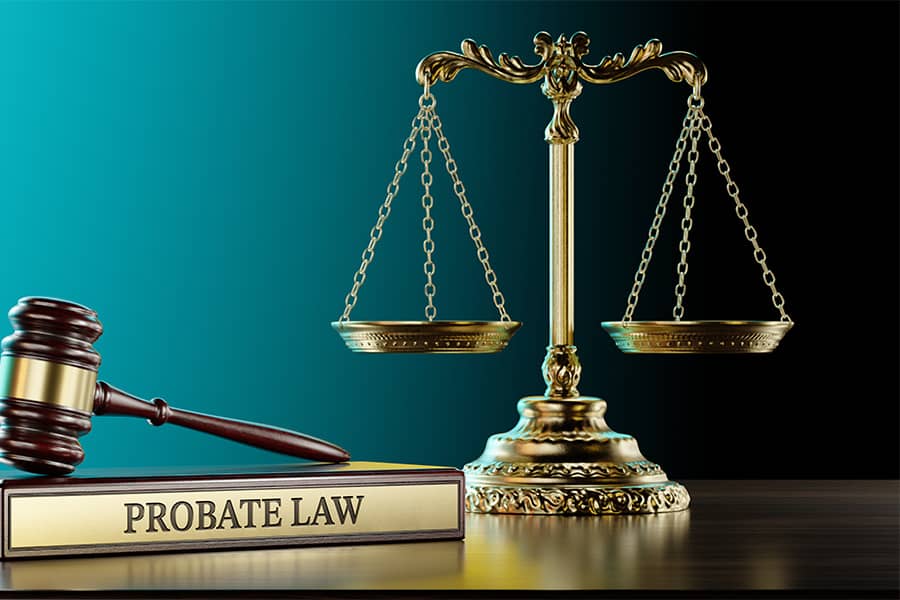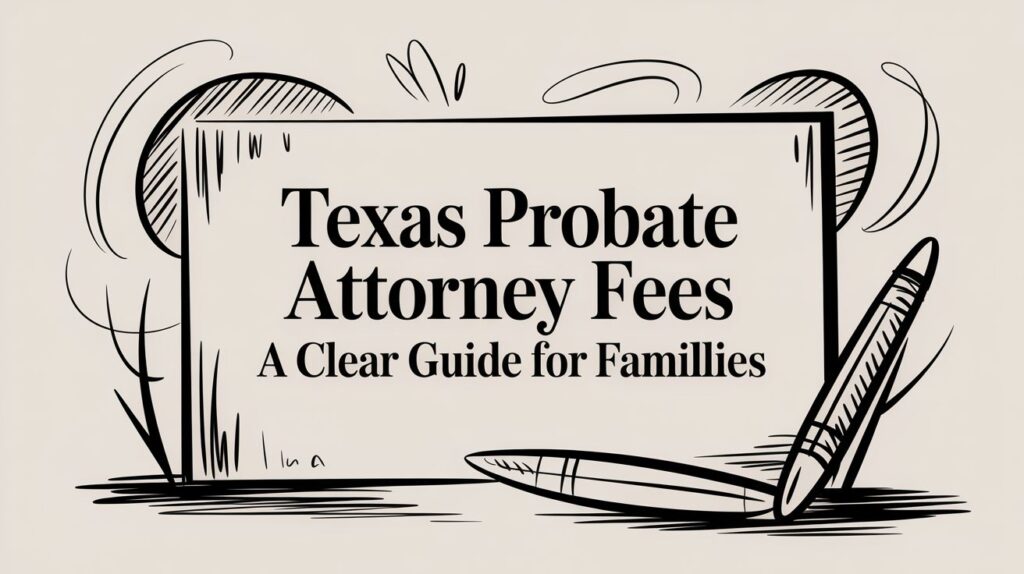If you’ve ever dealt with a loved one’s passing, you’ve probably heard the term probate thrown around—and possibly dreaded it. The good news? You’re not alone in feeling confused or overwhelmed. The better news? This article is here to offer clarity. Understanding the probate court process simplified means breaking it down in a way that actually makes sense—no legalese, no guesswork, just real talk about how it works and why it matters. Whether you’re stepping into the role of executor or simply trying to support family, knowing the basics can make all the difference.
In this detailed guide, you’ll learn what probate is, how the court process unfolds, what paperwork is required, how long it takes, and—maybe most importantly—how to navigate the system without losing your mind. Along the way, we’ll include real-world stories and practical tips so that by the end, you’ll feel confident instead of lost. Because when the legal side of grief gets overwhelming, understanding each step can bring a sense of control.

What Is Probate and Why Is It Necessary?
Probate in Plain English
Probate is the legal process through which a deceased person’s estate is managed and distributed. In most cases, this involves:
- Proving the validity of the will (if one exists)
- Appointing someone to manage the estate (called an executor or administrator)
- Paying off the deceased’s debts and taxes
- Distributing the remaining assets to beneficiaries
When we say understanding the probate court process simplified, this is where it starts: probate exists to ensure that everything is handled legally and fairly.
But Can’t We Just Skip It?
Sometimes, yes. If the deceased had a living trust or used certain tools like Transfer-on-Death deeds or Payable-on-Death accounts, probate may not be necessary. But in most cases—especially if real estate is involved or the estate exceeds a certain dollar amount—probate is required by law.
The First Step: Filing the Will and Opening the Estate
Who Files What and Where?
The process begins when someone (usually the named executor) files the original will and a petition to open probate with the probate court in the county where the deceased lived.
Required documents typically include:
- The death certificate
- The will (if there is one)
- A list of known assets and debts
- Contact information for heirs and beneficiaries
Once the paperwork is submitted, the court will schedule a hearing to formally open the estate and appoint the executor.
Real-Life Example: Janet’s Journey
When Janet’s mother passed away in Houston, she thought having a will would make everything simple. But she quickly learned that probate court doesn’t skip steps—even for organized families. She had to file documents, attend a court hearing, and wait for the judge to approve her as executor. From that moment on, Janet was responsible for managing everything from her mom’s bank accounts to her old house. Without understanding the probate court process simplified, she would’ve been totally lost.
Executor vs. Administrator: What’s the Difference?
Two Roles, One Purpose
An executor is someone named in the will to handle the estate. An administrator is appointed by the court when no will exists or no executor is named.
Both roles involve the same duties:
- Collecting and managing assets
- Notifying creditors
- Filing taxes on behalf of the deceased
- Distributing the estate according to the law or the will
Understanding who handles what is critical to understanding the probate court process simplified, especially when family dynamics get complicated.
Notice to Heirs and Beneficiaries
Why Everyone Needs to Know
Once the executor is officially appointed, they must notify all interested parties, including:
- Heirs-at-law (people who would inherit under state law if there were no will)
- Named beneficiaries
- Known creditors
This step allows anyone with a legal interest in the estate to contest the willor make a claim.
Public notice in a local newspaper is also often required—this satisfies the court’s requirement that the process is transparent and fair.

Inventorying the Estate
Counting Everything That Matters
Next, the executor must prepare an inventory of the estate’s assets. This includes:
- Real property (like homes and land)
- Personal property (jewelry, vehicles, art)
- Bank accounts and investments
- Business interests
- Retirement accounts and life insurance (if not already assigned to beneficiaries)
Once completed, this inventory is submitted to the court, and it becomes a key part of the official probate record. Understanding this task is fundamental in grasping the probate court process simplified, because it shows the court what’s in the estate and helps shape how it will be distributed.
Dealing With Debts and Creditors
Settling What’s Owed Before Anyone Gets Paid
Before any beneficiaries receive their inheritance, the estate’s debts must be paid. This includes:
- Credit card debt
- Mortgages
- Medical bills
- Personal loans
- Final taxes owed to the IRS or state
The executor uses estate funds to pay valid claims. If the estate doesn’t have enough money, creditors may receive partial payments—or nothing at all.
This step is often stressful, especially when heirs don’t understand why payouts are delayed. That’s why understanding the probate court process simplified can help set expectations early on.
Paying Taxes and Filing Returns
Uncle Sam Still Wants His Cut
The executor must also file:
- A final income tax return for the deceased
- An estate tax return (if applicable)
- Local property or business taxes
While most estates won’t owe federal estate tax (thanks to the high exemption threshold), state-level taxes might still apply.
Missed tax filings can delay probate or even create personal liability for the executor. Staying organized during this phase is crucial.
Disputes, Contests, and Court Hearings
What Happens When Someone Challenges the Process
Probate isn’t always smooth sailing. Common reasons for disputes include:
- Claims that the will was forged or signed under pressure
- Allegations of fraud or theft by the executor
- Disputes over omitted family members (like estranged children)
- Disagreements between heirs about how to divide assets

These conflicts can extend probate by months—or even years. They often require additional hearings, mediation, or even full-blown court trials.
If you’re anticipating conflict, it’s wise to consult a probate attorney early in the process.
Distribution of Assets
The Finish Line (Almost)
Once debts are settled and taxes are paid, the court allows the executor to begin distributing what’s left. This is usually done according to the will—or by state law if no will exists.
The executor may need to:
- Sell real estate and divide the proceeds
- Transfer vehicle titles
- Cut checks to beneficiaries
- Set up trusts for minor heirs
A final accounting must often be filed with the court, showing exactly what came in, what went out, and who got what.
This phase marks the end of understanding the probate court process simplified, as it brings everything full circle—wrapping up what can be a long and emotionally difficult journey.
How Long Does Probate Take?
The Honest Answer: It Depends
On average, probate takes 6 months to 1 year for simple estates. Complicated estates can take 2 to 3 years—or more.
Delays often happen due to:
- Missing paperwork
- Contested wills
- Incomplete asset inventories
- Tax complications
- Uncooperative heirs or co-executors
Knowing what causes delays is part of understanding the probate court process simplified. If you anticipate obstacles, you can prepare better and avoid surprises.
Can You Avoid Probate Altogether?
Tools That Help You Skip the Process
Here are some estate planning tools designed to bypass probate:
- Revocable living trusts
- Joint tenancy with right of survivorship
- Payable-on-death bank accounts
- Transfer-on-death deeds for real estate
- Beneficiary designations on retirement and insurance accounts

Using these tools in advance can save your loved ones time, money, and stress. And if you’re creating an estate plan, learning about these options is part of understanding the probate court process simplified from the other side.
Real-World Story: Alex and the Long Road to Probate Closure
Alex lost his father unexpectedly. While his dad had a will, it didn’t cover everything—especially not the family cabin or several bank accounts. Probate took 18 months, mainly due to sibling arguments and incomplete paperwork.
By the end, Alex had spent thousands in legal fees and dozens of hours in court filings. His advice to others? “Don’t go in blind. Learn the system. Because once you’re in it, it’s a lot harder to get out.”
Stories like Alex’s underscore why understanding the probate court process simplified can make all the difference
Final Thoughts: Understanding the Probate Court Process Simplified
Probate doesn’t have to be a horror story—but it will be if you’re unprepared. From filing the will and notifying creditors to distributing assets and closing the estate, each step requires attention to detail, communication, and patience.
By learning the basics, asking the right questions, and getting the right help, you can take control of the process instead of letting it control you. Understanding the probate court process simplified isn’t just about paperwork—it’s about protecting your family, honoring someone’s wishes, and closing an important chapter with clarity.
And while no probate journey is identical, they all share one truth: The more you know, the smoother it goes.








